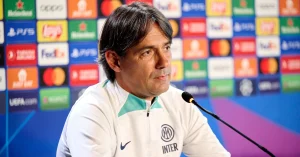
1. FC Nuremberg FC
1. FC Nuremberg FC is a storied football club with a rich heritage rooted in German football history. Known affectionately as “Der Club,” it has played an influential role in shaping the sport in Germany, boasting passionate fans and a tradition of resilience and excellence. This article delves deeply into the club’s origins, its historical significance, its journey through various leagues, notable players, and its current status, providing comprehensive insights for both dedicated supporters and newcomers alike W88.
Historical Origins and Founding of 1. FC Nuremberg FC
Understanding the roots of 1. FC Nuremberg FC is essential to appreciating its significance within German football culture. The club was founded amidst a period of burgeoning interest in organized sports across Germany, emerging from local athletic clubs that sought to channel community enthusiasm into competitive football https://w888.support/.
The Early Years and Formation (1899–1910s)
The club’s founding dates back to 1900, amid a wave of sports clubs forming in Germany at the dawn of the 20th century. Initially, the club was established as “Fußballclub Nürnberg” by local enthusiasts eager to compete and elevate football’s popularity in Bavaria. During these formative years, the club faced challenges typical of nascent organizations—limited resources, establishing a competitive squad, and gaining recognition.
In this early period, 1. FC Nuremberg FC distinguished itself through local tournaments and regional competitions, gradually building a reputation as a formidable team. Its development coincided with the growth of football across Germany, contributing to the national narrative of athletic achievement. The club’s early focus on youth development and community engagement set the foundation for its future successes.
Growth and Consolidation in the 1920s and 1930s
As the interwar years unfolded, 1. FC Nuremberg FC expanded its infrastructure and competitive reach. The club became affiliated with local civic institutions, which facilitated investments in training facilities and coaching staff. During this period, the club participated in regional championships, eventually earning promotion to higher tiers of German football.
The tumultuous political environment of the 1930s, marked by the rise of Nazi Germany, also influenced sports organizations. Many clubs, including Nuremberg, experienced reorganization under state mandates. Despite these challenges, 1. FC Nuremberg FC maintained a focus on fostering local talent and promoting athletic excellence.
Post-War Rebuilding and League Re-entry (1945–1963)
World War II dealt a severe blow to German football clubs, with many facilities damaged or repurposed during wartime. After the war, 1. FC Nuremberg FC faced the daunting task of rebuilding both physically and structurally. The post-war era saw a renaissance of football in Germany, culminating in the establishment of the Bundesliga in 1963.





